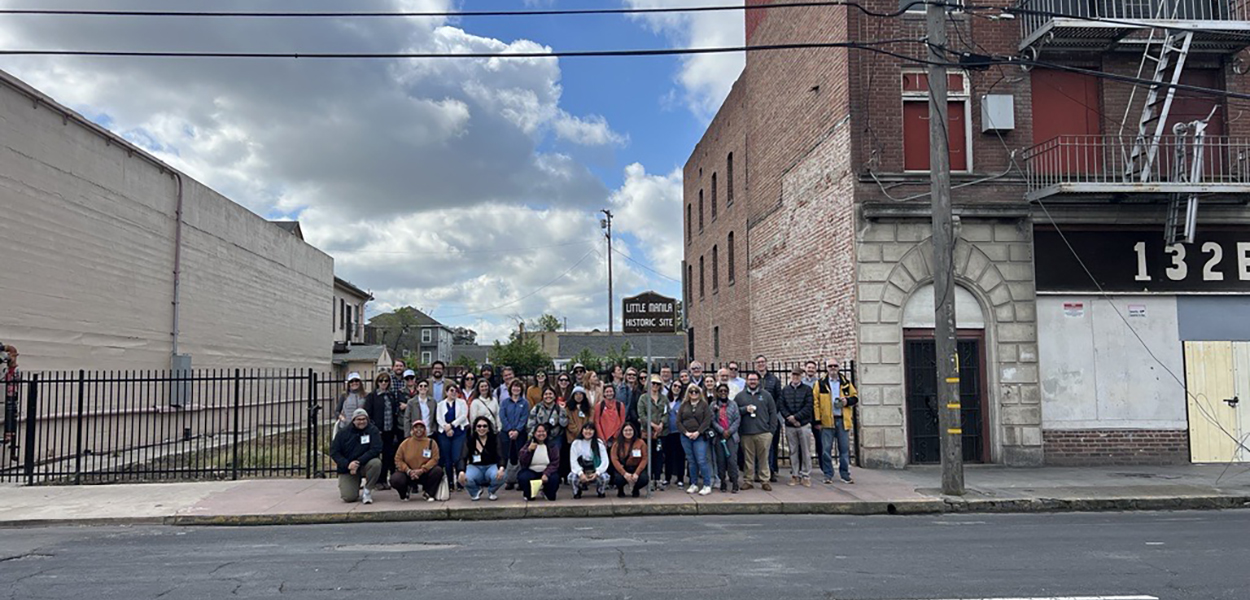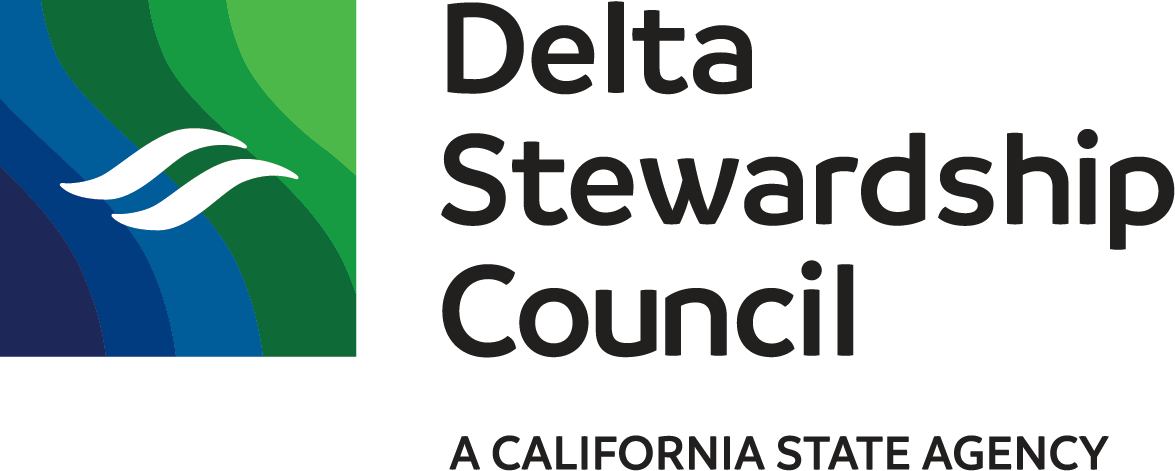
Tribal and Environmental Justice Issues in the Sacramento-San Joaquin Delta: History and Current Perspectives
September 17, 2024
By Amanda Bohl, Morgan Chow, Annie Merritt, Megan Thomson, and Meenatchi Odaiyappan
September 3 marked a major milestone for the Delta Stewardship Council’s work related to tribal and environmental justice, as Council staff released the public review draft of its tribal and environmental justice issue paper. The issue paper is the culmination of over three years of listening, researching, and considering how the Council can further incorporate tribal justice and environmental justice (EJ) into its work.
Addressing EJ requires understanding, acknowledging, and working in partnership to address historical wrongs that have resulted in inequitable distributions of environmental harms and benefits today; promoting a fair and open governance process that all community members can participate in; and ensuring that those who are most burdened and/or were historically marginalized are represented in environmental decision-making in the Sacramento-San Joaquin Delta.
The Council’s mission is to further the coequal goals of “providing a more reliable water supply for California and protecting, restoring, and enhancing the Delta ecosystem—in a manner that protects and enhances the unique cultural, recreational, natural resource, and agricultural values of the Delta as an evolving place.” This is not possible without considering equity and justice.
This issue paper is an important first step in understanding, acknowledging, and responding to the concerns of Tribal and EJ communities in the Delta.
The issue paper includes a robust history to help the Council—and others working in the Delta—understand and acknowledge the tribal and environmental context of the region. Paramount to this understanding is acknowledging that tribes view the legal Delta as an artificial construct. This paper expresses the Council’s evolving understanding of tribal and EJ issues and provides a foundational context from which the Council can build and grow its tribal and EJ work in the future.
Through a mixed-method approach drawing on multiple sources, such as scholarly literature, past public comments, and 22 interviews with tribal and EJ-serving organizations, the issue paper identifies ongoing and persistent tribal and EJ concerns in the Delta.
Key takeaways include:
- EJ communities: Government agencies need to understand who comprises tribal and EJ communities and where they are located spatially throughout the Delta.
- EJ literacy in government: Government staff need a better understanding of how EJ issues connect with their work and the cultural, tribal, and EJ policy context at their respective agencies.
- Water supply reliability, quality, and affordability: Water is both a defining feature of the Delta landscape and culture and is central to EJ in the Delta. Water-related issues include water supply reliability, water quality, and water affordability challenges, and more specifically, which communities have access to clean, reliable, and affordable water and which do not.
- Accessible green or open space: Many Delta communities’ access to a park, beach, open space, or coastline is lower than the state average.
- Flood risk: Many Delta residents are unaware of their flood risk or do not know how to navigate the process of acquiring flood insurance. In 2023, less than 20% of Delta residents reported having flood insurance. Income levels affect how people perceive flood risks and their willingness and ability to evacuate in response to warnings. Linguistically isolated households may not be as aware of flood risks or receive timely warnings. Furthermore, residents in high flood-risk zones often cannot relocate even if they would like to due to housing unaffordability.
- Impacts of drought on communities: There has been increasing scientific attention to drought impacts in the legal Delta, and recent research has documented reductions in overall water quality, increased salinity intrusion, increased occurrences of harmful algal blooms, and widescale ecosystem decline. Additional research has demonstrated Black and Latino communities across the Bay-Delta face disproportionately greater risk of surface water contamination, suggesting that drought impacts may also fall more heavily on disadvantaged communities.
Three years of work and collaboration have brought the Council to this important point, but our work is not done. We know there’s much left to do, and we hope readers of this issue paper will join the Council on furthering tribal justice and EJ in the Delta.
A 60-day public comment period and a tribal consultation period opened on September 3, 2024, and a public discussion will be held during the September 26, 2024, Council meeting in Stockton. Ideas generated during the September 26 discussion, along with comments emailed to environmentaljustice@deltacouncil.ca.gov or mailed to the following address by November 4, 2024, at 5:00 PM, will be considered for the final issue paper.
Delta Stewardship Council
ATTN: Amanda Bohl
715 P Street, 15-300
Sacramento, CA 95814
The Authors
Amanda Bohl, Special Assistant for Planning and Science
Morgan Chow, Environmental Program Manager
Annie Merritt, Environmental Scientist
Megan Thomson, Environmental Scientist
Meenatchi Odaiyappan, Former Executive Fellow

